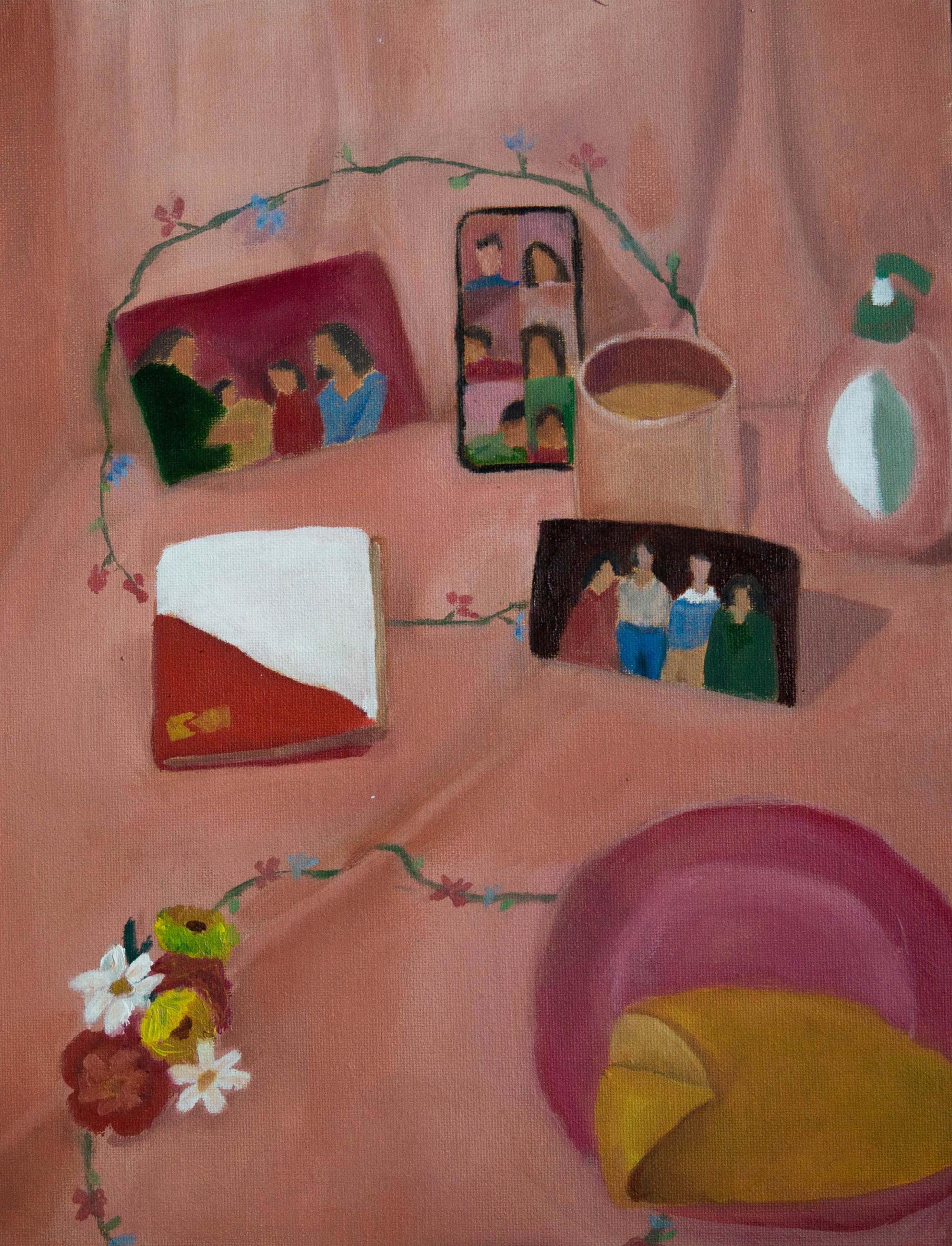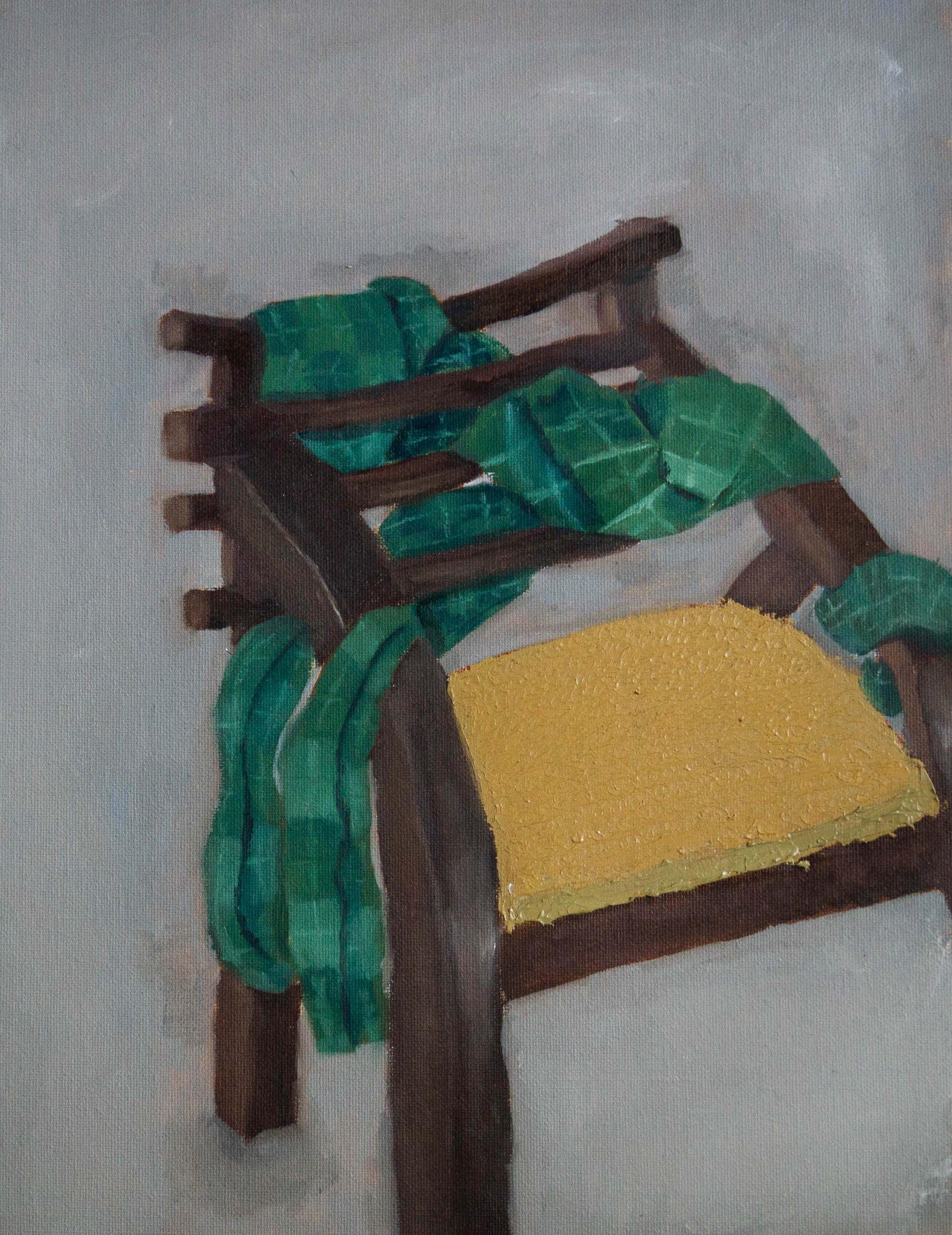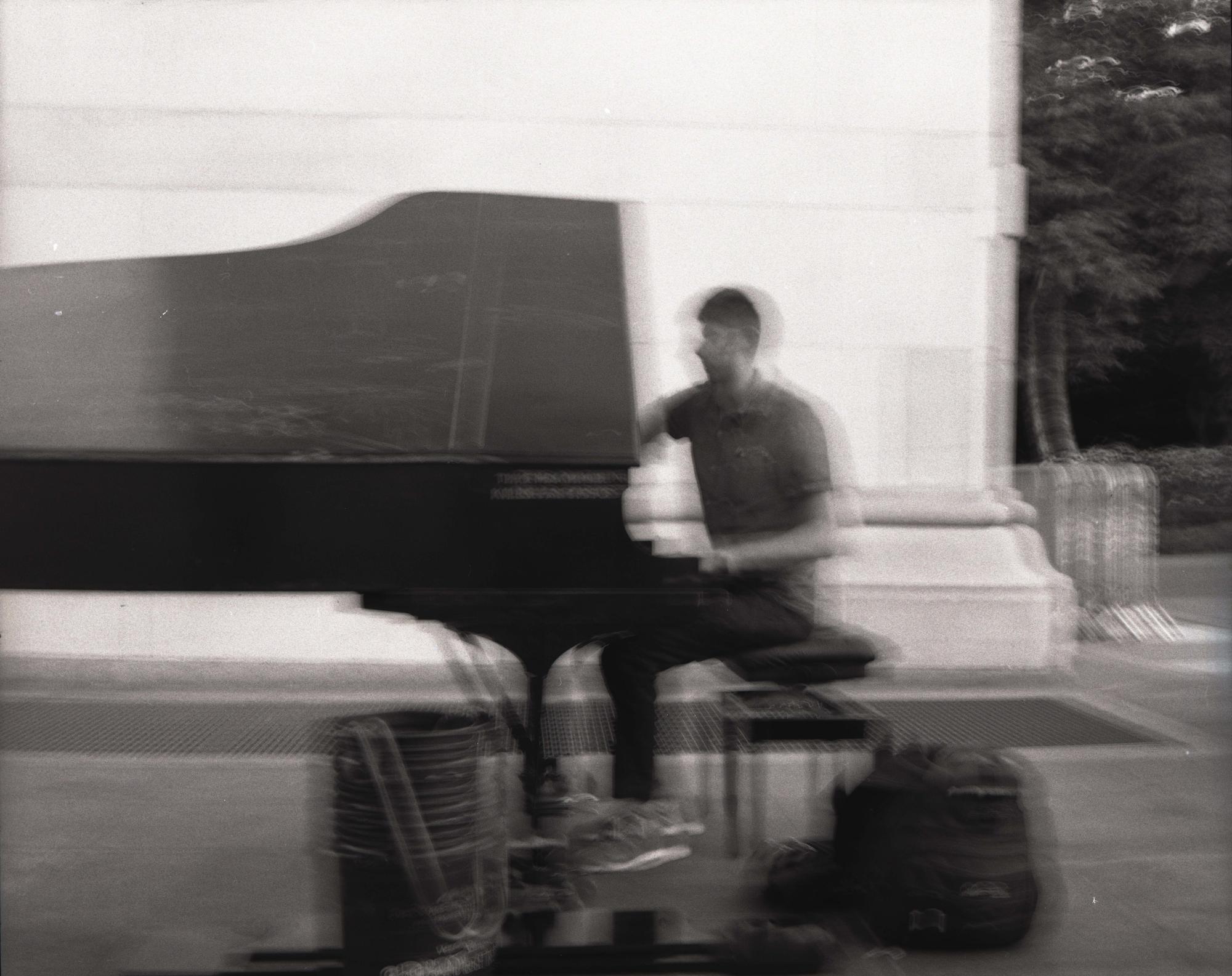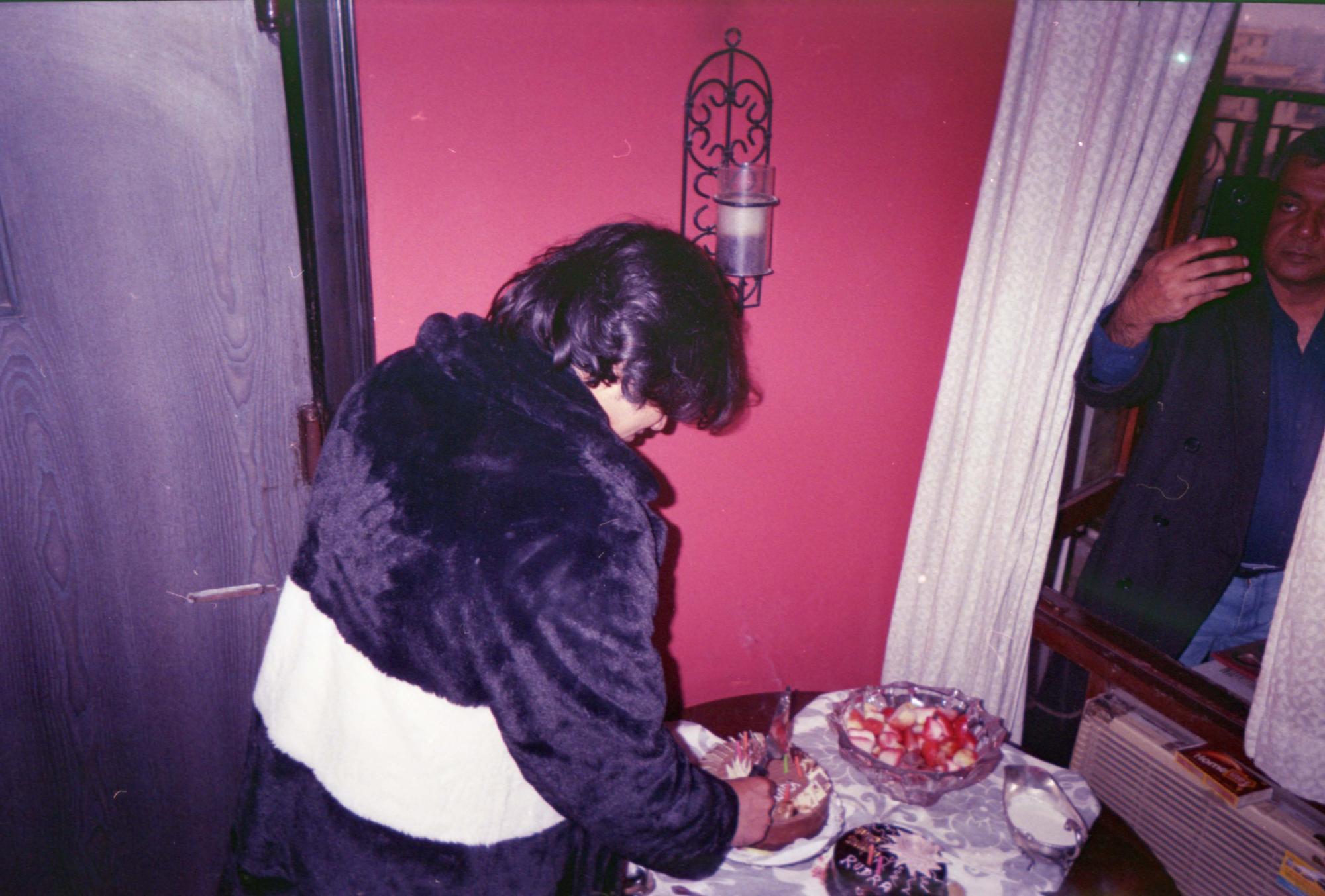










SIDDHANT TALWAR
Siddhant Talwar is a twenty-year-old artist, designer and organizer. His work deals with issues around identity, his sense of self and his relationships with those around him. Talwar is really interested in digital cultures and their effects on personal and political spheres, especially those dealing with sexuality and gender. He has exhibited at Tisch Library (2020), Polykhroma (2020), School of the Museum of Fine Arts (2020, 2019) and RSM Gallery (2018). His work has been collected by The W. Van Alan Clark, Jr. Library, Tisch Library and Ed Kinsella (Private Collection).He also helps run Project Ekta, a social justice co-operative. From organizers on the ground to creatives online, this collective includes artists, activists, programmers, and others from South-Asia and the South-Asian diaspora who have helped lay the groundwork for global solidarity, transnational networks, and borderless collaboration to resist the fascist and surveillance state many of us call home.
Project Ekta is a community art project, their work has been showcased at Tufts, SMFA and has been featured in BBC and Mumbai Times. Their content has been shared widely online and they have collaborated with Dil Mil and the Netflix show, Indian Matchmaking. Since the start of this year, they have in total fundraised over twenty five thousand dollars for various community run COVID relief efforts in India.
Website: https://siddhanttalwar.art/
Artist Statement:
I want my work to move and change people and their perceptions.As an artist whose work deals with identity and the pain that comes with it. I want to be able to bring the spectator into my position, make them face my pain and also heal along with me as they go through my art. I am not bound by any medium, as that would be too limiting. My work spans across photo, graphic art, fabrication, virtual reality, painting and blends disciplines together to best bring the person into my world. My work does have a heavy photographic and perhaps graphic influence, due to my deep interest in these areas. I repurpose realities captured by my camera and bring them into different forms. My documentary work deals with comfortable moments within an uncomfortable existence. My identity as a queer, gender non-conforming individual makes a lot of the spaces I live in violent and exclusionary, thus with my art I make spaces for those like me, claiming space for love in an otherwise hateful world.
Living and working between the States and India my work is also about home, finding new homes and how digital cultures shape my living. It also is oftentimes about the state’s atrocities and where the personal becomes political. Growing up with the internet also means that a lot of the work that I do have influences of digital technology and how we interact with it.
Project Ekta is a social justice co-operative. It seeks to confront corporate power and call attention to the hollowing out of democratic institutions globally through community-based art projects and supporting community-led endeavors. We work with grassroots organizations because they consist of right-holders - people who are directly affected by a problem or whose rights have been infringed or violated. They are the first responders to the crisis and critical in deriving solutions that best fit the context. Associated with the bottoms-up and on-ground approach, they seek to challenge and change the status quo. They deeply engage with the communities they represent and therefore are in the best position to understand and address the underlying and systemic forces that lie at the root of the problem. Part of our collective effort is co-liberation because we believe that all of our struggles are intimately connected. And as democratic recession and authoritarian resurgence continue, we believe that the role of the foundations led by local communities has become more critical than ever.
Project Description:
The exhibit seeks to showcase and honor the work of BIPOC trans artists from Boston and across the world. The aggressive policing of the public, the resurgence and normalization of a visceral disgust at gender non-conformity, the heightened degree of violence experienced by trans people globally place us at a critical juncture. Through the works of BIPOC trans artists we hope to invite, we aim to create space for contending with the past and imagining trans future while analyzing and critiquing the tactical embrace of LGBTIA issues by neoliberal capitalism, militarism, and authoritarian regimes in the present. We are currently in conversation with the Rose Art Museum as a potential venue for our exhibit. Museum almost has an alchemical ability to transmute marginal narratives, particularly queer and trans narratives, into something that passes for official history; after all, that is what museums were for - history, but were they preserving or creating it, is the question. The curation of a museum, then, becomes crucial to our collective social reckoning because museums and art institutions have historically contributed towards the systemic dispossession of trans people. Collecting and curating art under the “museum” grants it immediate legitimacy, and the exhibit tries to leverage the word museum and the cultural capital that comes along with it to confront and challenge this history of dispossession in order to build a meaningful space for conversation. The exhibit also demands and takes space from institutions that have historically excluded the genderqueer. Queer theories like the undercommons are central to our exhibit.
In addition to exhibiting the work of BIPOC trans artists and financially supporting them, we aim to create opportunities for mentoring, develop a community, and foster relationships that support their endeavors and affirm their existence in the years to come. Using techniques like open calls and engaging with younger local artists we want to make this process as equitable as possible.
Fostering non academic art spaces within the institution is an integral part of our community building practice at Project Ekta. We want to bring smaller artists to the forefront and use the power of the institution to give them a platform that can lead to future work and opportunities. This is especially important when thinking about making space for BIPOC trans and genderqueer folk within the institution that excludes them. The space is also made by genderqueer folk and thus is an act of claiming space, of making an undercommons. We want to create a network of artists and connect them to faculty around Boston like Kareem Khubchandani, a performance studies professor and drag queen. Thus, this becomes both an exhibition and also a program to facilitate discussion, dialogue and artistic development. We also have a global outreach and this exhibition will help artists get that global platform to talk about their work.
While we think gender can be thought about in a global context, we are also uniquely positioned to take advantage of Boston’s thriving young queer artist scene. Artists like Payal Kumar and Jhona Xaviera come to mind while thinking of work that makes the personal political and questions the state. We want to make space for local artists to make a trans-national network but also have support close by and create a community that can sustain and support them even after this program.
The institution is a contested space. However, it also largely serves a white cis audience and is run mainly by white cis men. We want to take over the institution by complicating it, by challenging whiteness and gender. We want to start a conversation about power and remind these intuitions that power is held by artists and the public.